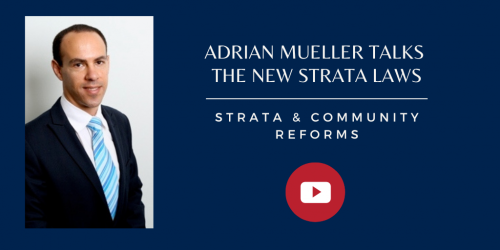Adding Further Building Defects to an Existing Claim
On 17 April 2023, the New South Wales Court of Appeal in the case of Parkview Constructions Pty Ltd v The Owners – Strata Plan No. 90018 (Parkview), confirmed that an owners corporation can add new defects to an existing claim if the statutory warranty period in the Home Building Act 1989 (HBA) has not expired.
Supreme Court Amends Building Defects Statement of Claim
In the Parkview case, in the Supreme Court, the owners corporation sought to amend its Statement of Claim to add new defects. The Supreme Court granted permission to the owners corporation to add new defects to its existing claim. The new defects that were added were not manifest when the owners corporation-initiated proceedings in the Supreme Court. Parkview appealed against the decision of the Supreme Court to the Court of Appeal.
Court of Appeal Win for Owners Corporation
The Court of Appeal upheld the decision of the Supreme Court by confirming that the owners corporation was entitled to add new defects to its existing claim and the addition was not a new cause of action but part of a single cause of action being a breach by the builder of the statutory warranties under the HBA.
Parkview argued that the addition of new defects introduced a “new” cause of action, and those new causes of action were not the same as the existing cause of action that was on foot. The Court of Appeal rejected that argument. It held that in a conventional case for breach of contract, there is a single cause of action. That cause of action is complete when a defective structure is provided irrespective of the number of ways in which those defects have manifested themselves. The Court of Appeal said that even though the HBA has created inroads into common law principles, however, those changes brought by the HBA do not alter the nature of the owners corporation’s claim.
Furthermore, the Court of Appeal said that a successor in title like an owners corporation sues a builder or a developer for statutory warranties under the HBA. The proceeding is based upon a breach of a single contract. An amendment does nothing more than introduce further departures from the building contract that the builder and the developer had promised and that does not give rise to a new cause of action because the cause of action remains one, that is for a breach of the same contract. Accordingly, the Court of Appeal held that the owners corporation’s amendments seeking to add new defects did not introduce a new cause of action and so the owners corporation was entitled to add them to its existing claim.
A Victory for Owners Corporations in NSW
This confirmation from the Court of Appeal is a great victory for owners corporations in NSW and it reconfirms the willingness of the judiciary to protect owners in strata schemes wherever it may be necessary.

Faiyaaz Shafiq I LLB GDLP I Lawyer
A highly experienced and respected, results driven Litigation Lawyer specialising in the areas of strata litigation, building & construction, commercial litigation, debt recovery, personal and company insolvency. Profile I Linked
Contact Us
For all strata law advice including by-laws, building defects and levy collections contact our specialist NSW and Sydney strata lawyers here or call 02 9562 1266, we’re happy to assist.



